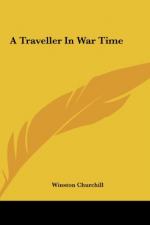In one of the hospitals I visited lay a wounded giant who had once been a truckman in a little town in Kent. Incidentally, in common with his neighbours, he had taken no interest in the war, which had seemed as remote to him as though he had lived in North Dakota. One day a Zeppelin dropped a bomb on that village, whereupon the able-bodied males enlisted to a man, and he with them. A subaltern in his company was an Eton boy. “We just couldn’t think of ’im as an orficer, sir; in the camps ’e used to play with us like a child. And then we went to France. And one night when we was wet to the skin and the Boschs was droppin’ shell all around us we got the word. It was him leaped over the top first of all, shouting back at us to come on. He tumbled right back and died in my arms, ‘e did, as I was climbin’ up after ’im. I shan’t ever forget ’im.”
As you travel about in these days you become conscious, among the people you meet, of a certain bewilderment. A static world and a static order are dissolving; and in England that order was so static as to make the present spectacle the more surprising. Signs of the disintegration of the old social strata were not lacking, indeed, in the earlier years of the twentieth century, when labour members and north-country radicals began to invade parliament; but the cataclysm of this war has accelerated the process. In the muddy trenches of Flanders and France a new comradeship has sprung up between officers and Tommies, while time-honoured precedent has been broken by the necessity of giving thousands of commissions to men of merit who do not belong to the “officer caste.” At the Haymarket Theatre I saw a fashionable audience wildly applaud a play in which the local tailor becomes a major-general and returns home to marry the daughter of the lord of a mayor whose clothes he used to cut before the war.
“The age of great adventure,” were the words used by Mr. H. G. Wells to describe this epoch as we discussed it. And a large proportion of the descendants of those who have governed England for centuries are apparently imbued with the spirit of this adventure, even though it may spell the end of their exclusive rule. As significant of the social mingling of elements which in the past never exchanged ideas or points of view I shall describe a week-end party at a large country house of Liberal complexion; on the Thames. I have reason to believe it fairly typical. The owner of this estate holds an important position in the Foreign Office, and the hostess has, by her wit and intelligent grasp of affairs, made an enviable place for herself. On her right, at luncheon on Sunday, was a labour leader, the head of one of the most powerful unions in Britain, and next him sat a member of one of the oldest of England’s titled families. The two were on terms of Christian names. The group included two or three women, a sculptor and an educator, another Foreign Office official who has made a reputation since the beginning of the war, and finally an employer of labour, the chairman of the biggest shipbuilding company in England.




